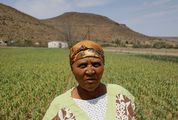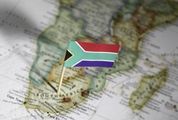Gender equality still far from being achieved
by Lindiwe Mazibuko,
2016-03-03 06:08:01.0
THE approach of International Women’s Day on Tuesday always brings to mind the famous Theodore Parker dictum, which is often ascribed incorrectly to Martin Luther King Jr: "I do not pretend to understand the moral universe; the arc is a long one, my eye reaches but little ways; I cannot calculate the curve and complete the figure by the experience of sight; I can divine it by conscience. And from what I see I am sure it bends towards justice."
When it comes to the attainment of gender equality, is this the trajectory upon which we find ourselves today? Are societies around the world treading an inevitable path towards gender justice?
The World Economic Forum (WEF) thinks so, and argues that the only changing variable is the speed at which this transformation is taking place.
In 2014, the WEF Gender Gap report, which measures progress towards equality across the key indicators of health, education, economic participation and political empowerment, proposed that at the current rate of change, global gender parity will be reached by 2095.
The following year, however, WEF estimated a considerable slowdown in progress towards global parity, adjusting the attainment date to 2133 — fully 117 years away.
In a year in which the women of Saudi Arabia voted for the first time, making the Vatican City the last state on earth in which women do not enjoy any form of suffrage; and when a female candidate is set to secure the nomination of her party to lead the world’s foremost economic and political power, it would be tempting to spend Women’s Day this year patting ourselves on the collective back and declaring freedom’s work almost done.
However, it is still too soon to celebrate the tilting of the scales towards justice for women.
Progress is still accompanied by pitfalls. Although 900 women campaigned and voted for the first time in Saudi Arabia’s third election last year, and 18 went on to win seats in municipal councils, strict gender separations in the kingdom still gave their 6,000 male opponents a competitive advantage throughout the campaign, enabling men to electioneer where women could not. Women’s historic electoral participation in Saudi Arabia also did not change the fact that strict custom still forbade them the simple freedom of driving to the polling stations.
In the US, where Hillary Clinton has emerged triumphant from a successful Super Tuesday at the polls, securing the support of seven out of 11 states in the Democratic primary, she nevertheless faces the prospect of election to the country’s highest office at a time when the legislature is held by a largely hostile Republican party whose hardliners have all but declared war on women’s reproductive rights.
State by state in the US, women’s access to safe and legal pregnancy termination has been cut off by successive Republican-held legislatures, while in Washington DC, both Congress and the Senate recently passed legislation to block federal funding for Planned Parenthood, the country’s nationwide reproductive healthcare provider.
In SA, as the governing African National Congress’s internal campaign to nominate African Union Commission chair Nkosazana Dlamini-Zuma to the party presidency gains momentum, expectations are mounting over the historic possibility that Parliament may soon elect the country’s first female head of state. While some political organisations are no strangers to the concept of women in leadership, Dlamini-Zuma’s election would be the first time the 104-year old governing party has had a female leader.
Divergent as opinion may be on whether she is the best candidate for the job, Dlamini-Zuma’s election would be a significant milestone for our fledgling democracy. If elected, however, she will take the reins of a nation in which women still suffer profound disadvantage compared to men; where the brunt of HIV/AIDS infection, sexual violence, joblessness and unequal access to education are borne by women; where women are the most marginalised and voiceless; where it is, in fact, dangerous to be born female.
Like Clinton in the US, Myanmar’s Aung San Suu Kyi, and any number of women in political office around the world for whom election to their nation’s highest office might soon be in reach, the election of Dlamini-Zuma to the presidency of SA would represent only the beginning of a long journey towards gender parity in our economy and society. But it would be a pretty sensational beginning.
• Mazibuko is a resident fellow of the Harvard Institute of Politics and former parliamentary leader of the Democratic Alliance.

Picture: ISTOCK
THE approach of International Women’s Day on Tuesday always brings to mind the famous Theodore Parker dictum, which is often ascribed incorrectly to Martin Luther King Jr: "I do not pretend to understand the moral universe; the arc is a long one, my eye reaches but little ways; I cannot calculate the curve and complete the figure by the experience of sight; I can divine it by conscience. And from what I see I am sure it bends towards justice."
When it comes to the attainment of gender equality, is this the trajectory upon which we find ourselves today? Are societies around the world treading an inevitable path towards gender justice?
The World Economic Forum (WEF) thinks so, and argues that the only changing variable is the speed at which this transformation is taking place.
In 2014, the WEF Gender Gap report, which measures progress towards equality across the key indicators of health, education, economic participation and political empowerment, proposed that at the current rate of change, global gender parity will be reached by 2095.
The following year, however, WEF estimated a considerable slowdown in progress towards global parity, adjusting the attainment date to 2133 — fully 117 years away.
In a year in which the women of Saudi Arabia voted for the first time, making the Vatican City the last state on earth in which women do not enjoy any form of suffrage; and when a female candidate is set to secure the nomination of her party to lead the world’s foremost economic and political power, it would be tempting to spend Women’s Day this year patting ourselves on the collective back and declaring freedom’s work almost done.
However, it is still too soon to celebrate the tilting of the scales towards justice for women.
Progress is still accompanied by pitfalls. Although 900 women campaigned and voted for the first time in Saudi Arabia’s third election last year, and 18 went on to win seats in municipal councils, strict gender separations in the kingdom still gave their 6,000 male opponents a competitive advantage throughout the campaign, enabling men to electioneer where women could not. Women’s historic electoral participation in Saudi Arabia also did not change the fact that strict custom still forbade them the simple freedom of driving to the polling stations.
In the US, where Hillary Clinton has emerged triumphant from a successful Super Tuesday at the polls, securing the support of seven out of 11 states in the Democratic primary, she nevertheless faces the prospect of election to the country’s highest office at a time when the legislature is held by a largely hostile Republican party whose hardliners have all but declared war on women’s reproductive rights.
State by state in the US, women’s access to safe and legal pregnancy termination has been cut off by successive Republican-held legislatures, while in Washington DC, both Congress and the Senate recently passed legislation to block federal funding for Planned Parenthood, the country’s nationwide reproductive healthcare provider.
In SA, as the governing African National Congress’s internal campaign to nominate African Union Commission chair Nkosazana Dlamini-Zuma to the party presidency gains momentum, expectations are mounting over the historic possibility that Parliament may soon elect the country’s first female head of state. While some political organisations are no strangers to the concept of women in leadership, Dlamini-Zuma’s election would be the first time the 104-year old governing party has had a female leader.
Divergent as opinion may be on whether she is the best candidate for the job, Dlamini-Zuma’s election would be a significant milestone for our fledgling democracy. If elected, however, she will take the reins of a nation in which women still suffer profound disadvantage compared to men; where the brunt of HIV/AIDS infection, sexual violence, joblessness and unequal access to education are borne by women; where women are the most marginalised and voiceless; where it is, in fact, dangerous to be born female.
Like Clinton in the US, Myanmar’s Aung San Suu Kyi, and any number of women in political office around the world for whom election to their nation’s highest office might soon be in reach, the election of Dlamini-Zuma to the presidency of SA would represent only the beginning of a long journey towards gender parity in our economy and society. But it would be a pretty sensational beginning.
• Mazibuko is a resident fellow of the Harvard Institute of Politics and former parliamentary leader of the Democratic Alliance.


























Change: 0.72%
Change: 0.67%
Change: 0.10%
Change: 0.14%
Change: 3.55%
Data supplied by Profile Data
Change: 0.40%
Change: 0.26%
Change: 0.72%
Change: 0.00%
Change: 0.35%
Data supplied by Profile Data
Change: 0.05%
Change: -0.10%
Change: 0.17%
Change: 0.07%
Change: 0.46%
Data supplied by Profile Data
Change: 0.98%
Change: 1.48%
Change: 2.32%
Change: 0.56%
Change: -0.43%
Data supplied by Profile Data